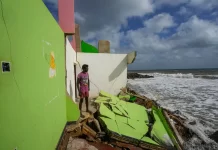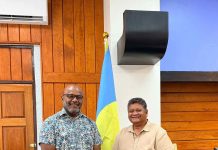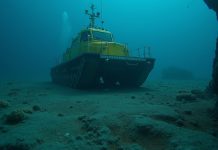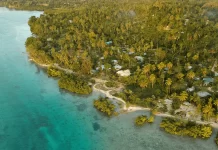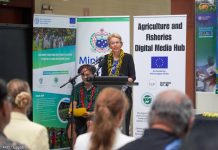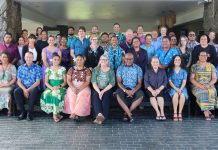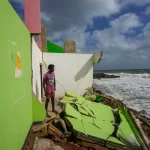As we gather to observe World Media Freedom Day on 03 May, with the global theme of “Journalism & Environmental Crisis,” it is crucial that we recognise the interconnected nature of environmental and journalism crises that confront our Pacific region and the world at large.
The environmental crisis we face, including climate change, deforestation, pollution, and biodiversity loss, poses unprecedented challenges to our planet and the well-being of current and future generations.
In this context, the role of journalism in addressing environmental crises is more critical than ever. Journalists serve as watchdogs, storytellers, and advocates, shining a light on environmental issues, holding stakeholders accountable, and mobilising public action to address pressing environmental challenges. However, journalists themselves are facing a crisis of their own – threats to press freedom, censorship, harassment, and attacks on media independence undermine their ability to fulfill their vital role in society.
The convergence of these dual crises highlights the urgent need for media organisations, civil society, governments, and other stakeholders to collaborate and support the role of journalism in addressing environmental challenges. When governments allow for a conducive environment for independent and responsible journalism, it empowers journalists to investigate, report, and communicate the complexities of environmental issues with accuracy, integrity, and transparency.
It is crucial that media organisations in the Pacific prioritise training and capacity development for journalists to equip them with the necessary skills and knowledge to navigate the complex landscape of environmental reporting. PINA is investing in the professional development of journalists through collaboration with regional and international partners like Earth Journalism Network (EJN) Internews, the Secretariat of the Pacific Regional Environment Programme (SPREP) and the Office of the Pacific Oceans Commissioner (OPOC) to enhance the quality and impact of environmental journalism in the Pacific, driving public awareness, policy change, and community engagement on environmental issues.
As we navigate these intertwined crises, it is crucial for NGOs, governments, and funders to recognise the critical role of journalists as partners in advancing environmental sustainability and social justice. Journalists must be included in projects not merely as observers but as active participants, providing independent and objective coverage that uncovers the truth, expose wrongdoing, and amplify the voices of marginalised communities.
I want to urge media organisations in the Pacific to commit to upholding media freedom, support the integrity of journalism, and collaborate across sectors to address the environmental and journalism crises facing our region. Together, we can harness the power of journalism to inform, inspire, and mobilise action towards a more sustainable, equitable, and resilient future for the Pacific and beyond.
PINA members will commemorate World Media Freedom Day on Wednesday 08 May 2024 in Suva, in a hybrid panel discussion event led by the Fijian Media Association (FMA) to reflect on the state of the media in the Pacific nation, a year after the removal of the restrictive MIDA legislation. PINA is funding the event through The Asia Foundation Power Up project that is strengthening women’s groups to address gender based violence and safeguard freedom of expression.
Tenk yu tru & Happy World Media Freedom Day celebrations!



